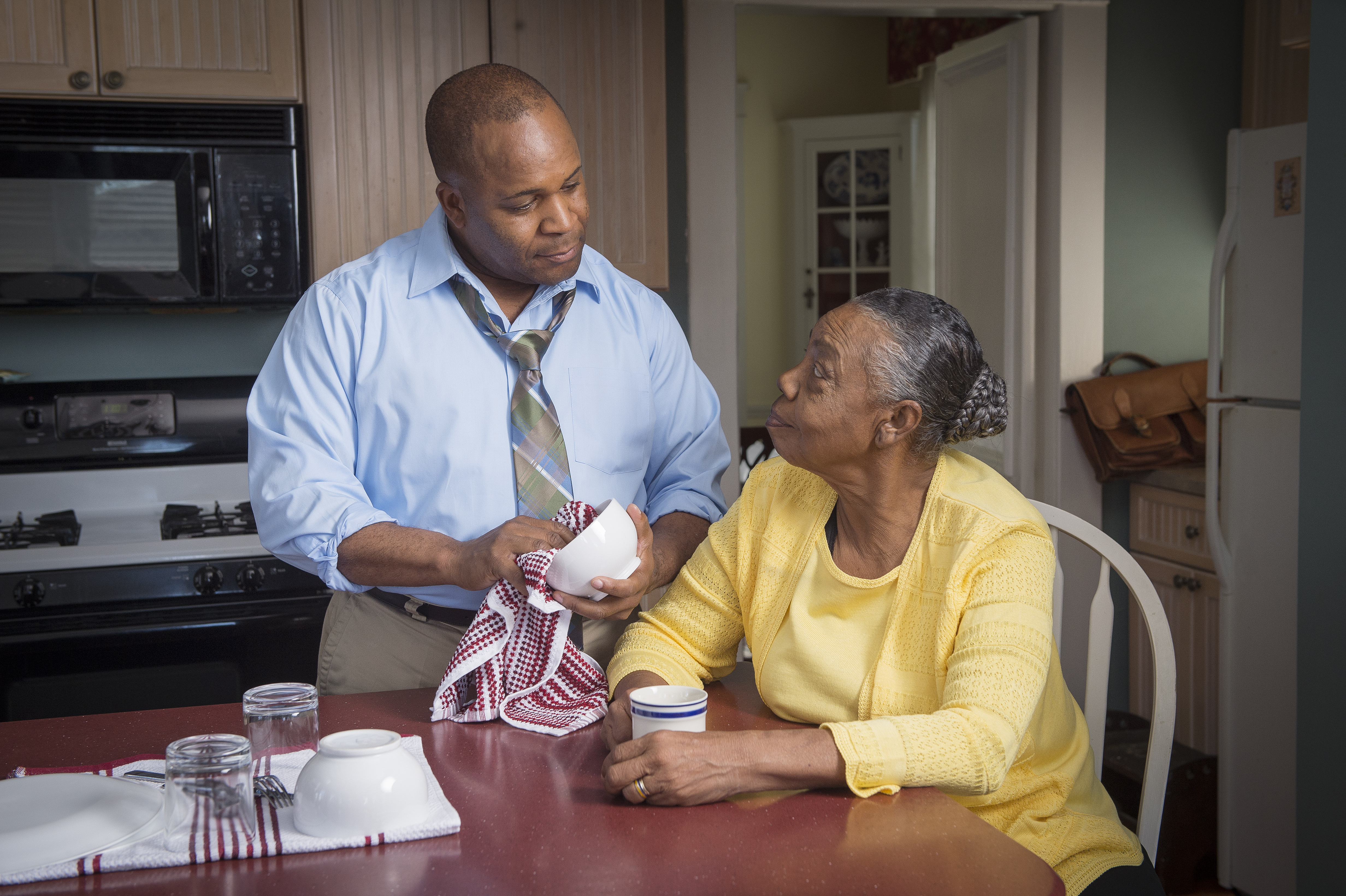AARP Hearing Center

FAMILY CAREGIVER TAX CREDIT
Every day, thousands of people in New Jersey care for their spouses, aging parents, or other loved ones – helping them live at home instead of costly nursing homes. This saves New Jersey – and taxpayers – money since nursing home care is mostly paid for by the state, through Medicaid; yet, family caregivers pay out of their own pockets. The average family caregiver spends 26% of their income on caregiving activities, assisting with everything from bathing and dressing to medical appointments and transportation – often while juggling a job too. The state’s 1 million family caregivers provide unpaid care valued at over $17 billion annually in New Jersey. A modest tax credit is financial relief family caregivers have earned.
Most family caregivers (six in 10) are working plus providing care 23 hours per week. One in 10 working caregivers have had to give up work entirely in order to care for a loved one. Family caregivers 50 and older who leave the workforce to care for a parent lose nearly $304,000, on average, in income and benefits over their lifetime.
In addition, caregivers’ savings are eroding, with 22 percent who used up personal short-term savings and 12 percent who used up long-term savings (for things like retirement or education). Two in 10 have left bills unpaid or paid them late (19 percent), while another 15 percent borrowed money from family or friends. Nearly 1 in 4 (23%) have taken on more debt. One in 10 have been unable to afford basic expenses like food (11 percent).
Caregivers are an integral component of our long-term care system and keeping loved ones in their homes, where they want to be. It’s essential we support family caregivers in their critical need for financial support.
AARP supports S2021/A1802, which provides a gross income tax credit for certain expenses while caring for an older loved one. Ninety percent of New Jersey voters 50 and older support a tax credit for unpaid family caregivers, including majorities of both Democrats (93%) and Republicans (84%).
AARP Supports:
A1802/S2021 (Lampitt, Schaer, Mosquera, Benson, McKnight, Sumter/Beach) Establishing the Caregiver’s Assistance Act, which provides a fully refundable gross income tax credit for certain expenses paid or incurred for care and support of a qualifying senior family member.
Who qualifies for the credit?
Residents with incomes of $100,000/year or less if married or a civil union partner; residents with incomes of $50,000/year or less if single.
Who is a qualified senior family member? A person who is 60 years or older (or is 50 years or older and qualifies for Social Security Disability Insurance) and is a relative of the caregiver, including chosen family. They can live with the caregiver or in their own residence in the state; and have an income less than the NJ Elder Index.
What is the amount of the credit? 22.5% of up to $3,000 in qualified care expenses paid or incurred by the caregiver. The maximum amount of each credit is $675 per year.
Is the credit fully refundable? Yes. A qualified caregiver is eligible to receive the benefits of the credit even if the caregiver’s income is below the minimum subject to tax.
What are qualified care expenses? Expenses paid or incurred during the taxable year for the purchase, lease, or rental of property and services that are necessary to allow the senior family member to be live at the caregiver’s home. Services can include home health agency services, adult day care, companionship services, personal care attendant, homemaker and respite care services, home modification services, health care equipment and supplies.
For more information on AARP New Jersey’s advocacy priorities, visit aarp.org/NJAdvocacypriorities.































































